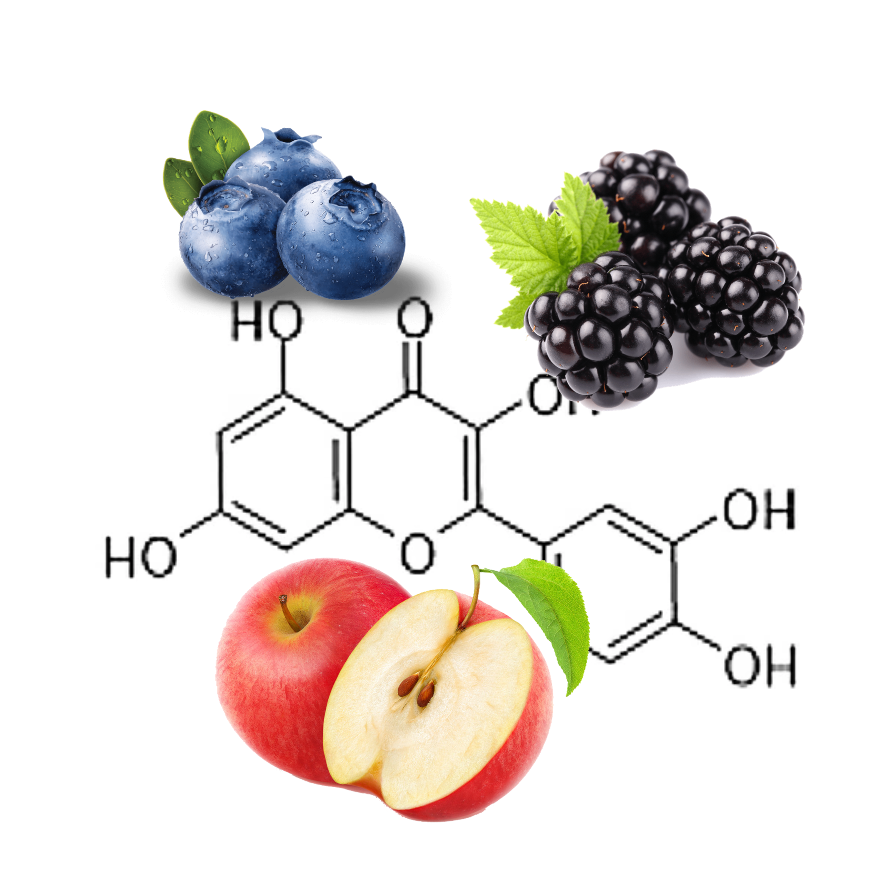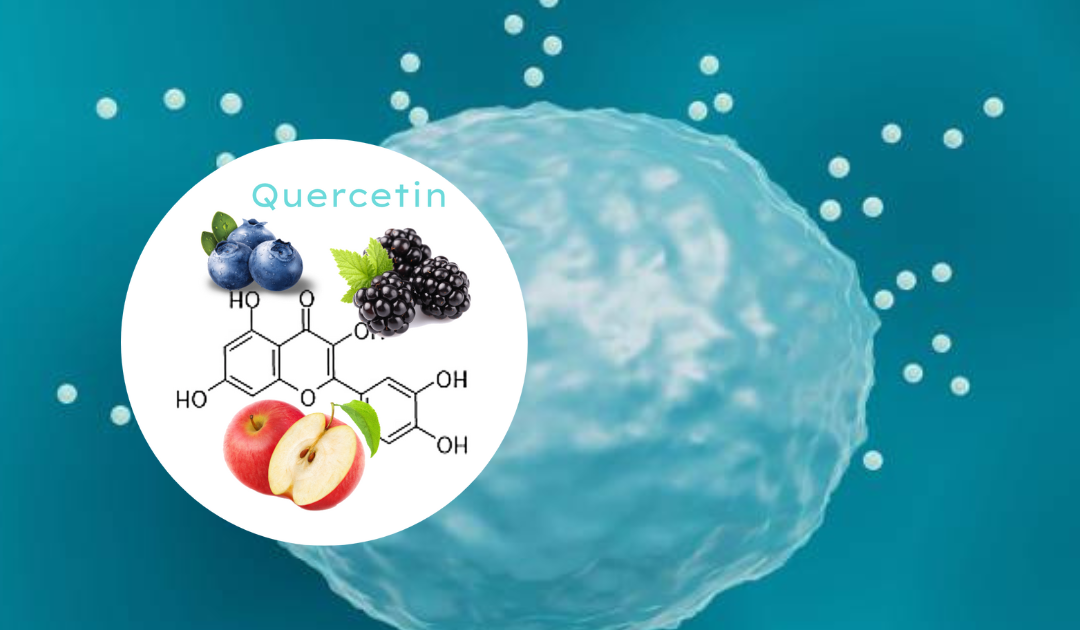
Quercetin is certainly one of the most exciting dietary flavonoids. It’s been linked to improved exercise performance and reduced inflammation, blood pressure, and blood sugar levels. Plus, it may have brain-protective, anti-allergy, and anticancer properties, and it is a natural antihistamine.
Numerous studies support the existence of a natural antihistamine because it regulates the release of histamine from basophils and mast cells (1). This regulatory mechanism can be used for various unwanted symptoms, allergies, asthma, and histamine intolerance symptoms.
QUERCETIN suppresses the release of histamine from basophils and mast cells, so reduces the symptoms of histamine intolerance or mast cell activation syndrome (2)
Other benefits
- Reduces cellular inflammation
- Prevention of allergies, in the alleviation of existing allergic symptoms
- Protects the heart and nervous system
- Prevention of osteoporosis, in the reduction of symptoms during menopause
- May help in weight loss
Allergies, Histamine intolerance
The enzyme diamine oxidase (DAO) is responsible for the proper breakdown of histamine. Histamine plays an important role in the dynamic functioning of our body, but if the activity of the DAO enzyme decreases, we can experience various unpleasant symptoms due to high histamine levels: hives, eczema, swollen mouth, cough, runny nose, digestive problems, bloating, flatulence or abdominal pain. In these cases, the regulatory function of quercetin may be helpful.
In addition to quercetin, DAO enzyme activity can be supported by supplementing other micronutrients. Among other things, zinc, copper, manganese, magnesium minerals, B vitamins (including choline and inositol), and vitamin C help proper production.
Quercetin displays high antioxidant and anti-inflammatory properties that have been proven by many in vivo and in vitro studies. Its anti-allergic mechanism of action through the inhibition of enzymes and inflammatory mediators has also been extensively studied. It is well known that quercetin is an inhibitor of human mast cell activation through the inhibition of Ca2+ influx, histamine, leukotrienes, and prostaglandins release. The results of the studies prove the unique position of this supplement in the treatment of allergic disorders and the possibility of using phytochemicals such as quercetin for an efficient cure. (3)
Antibacterial and antiviral activity
This excellent flavonoid is known to exhibit antibacterial effects against almost all strains of bacteria, particularly affecting the gastrointestinal, respiratory, urinary, and dermal systems. (4)
Cardiovascular health
In 2008, a randomized, placebo-controlled crossover trial in 12 healthy men showed biochemical evidence of improved endothelial function (such as augmentation of nitric oxide status) with as little as 200 mg/day of quercetin. (5)
Obesity
This flavonoid actually blocks the uptake of glucose from the blood, depriving fat cells of the raw material they need to manufacture and accumulate fat molecules. (6)
In another study, genistein, quercetin, and resveratrol together decreased lipid accumulation in fat cells by 17%, 20%, and 17%, respectively, the combination of all three agents decreased lipid accumulation by an impressive 80%. (7)


